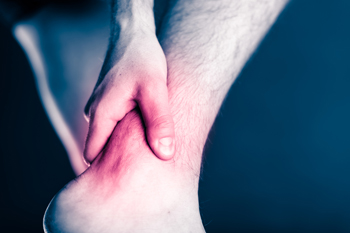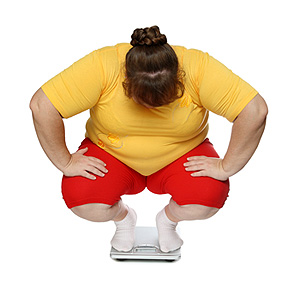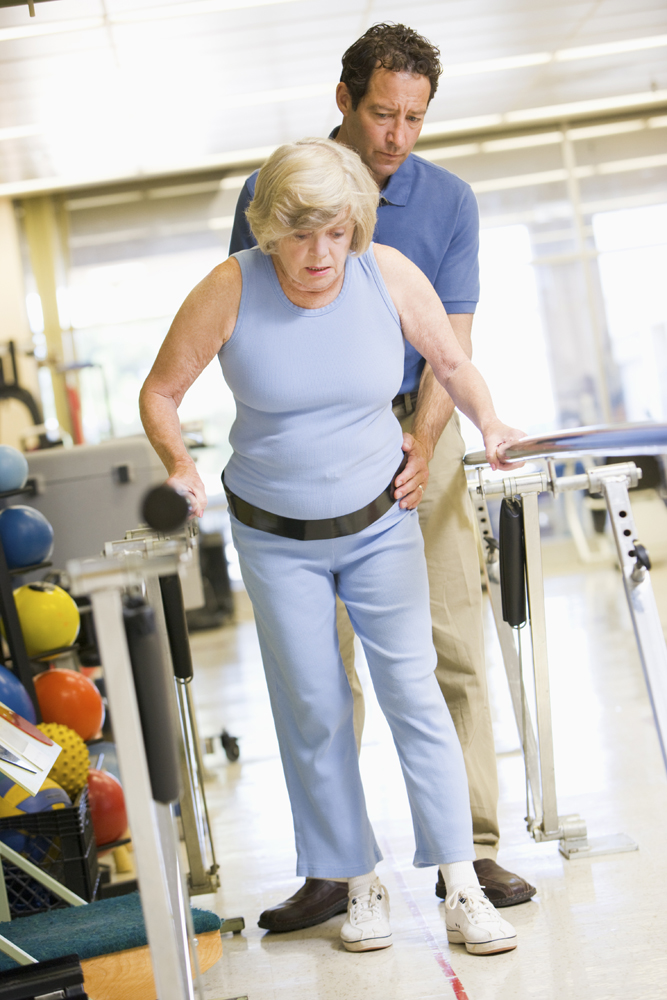May 2018
Pins and Needles Felt During Pregnancy
 Pins and needles is a sensation that occurs when the blood supply to the nerves is cut off. This sometimes happens if you sit or sleep in an awkward position. This feeling normally goes away if you take the weight off the affected body part, which restores the blood supply to the nerves. This sensation is common in pregnancy, and if you are experiencing it in your feet, it may be a sign of gestational diabetes which is a temporary form of the condition that develops during pregnancy. Although pins and needles during pregnancy usually isn't worrisome, you may feel a burning sensation in your feet at times. Please consider scheduling a consultation with a podiatrist for any questions or concerns regarding pins and needles felt in the feet during pregnancy.
Pins and needles is a sensation that occurs when the blood supply to the nerves is cut off. This sometimes happens if you sit or sleep in an awkward position. This feeling normally goes away if you take the weight off the affected body part, which restores the blood supply to the nerves. This sensation is common in pregnancy, and if you are experiencing it in your feet, it may be a sign of gestational diabetes which is a temporary form of the condition that develops during pregnancy. Although pins and needles during pregnancy usually isn't worrisome, you may feel a burning sensation in your feet at times. Please consider scheduling a consultation with a podiatrist for any questions or concerns regarding pins and needles felt in the feet during pregnancy.
Pregnant women with swollen feet can be treated with a variety of different methods that are readily available. For more information about other cures for swollen feet during pregnancy, consult with Dr. Scott Shrem from Garden State Foot & Ankle Center. Our doctor will attend to all of your foot and ankle needs.
What Foot Problems Can Arise During Pregnancy?
One problem that can occur is overpronation, which occurs when the arch of the foot flattens and tends to roll inward. This can cause pain and discomfort in your heels while you’re walking or even just standing up, trying to support your baby.
Another problem is edema, or swelling in the extremities. This often affects the feet during pregnancy but tends to occur in the later stages.
How Can I Keep My Feet Healthy During Pregnancy?
- Wearing orthotics can provide extra support for the feet and help distribute weight evenly
- Minimize the amount of time spent walking barefoot
- Wear shoes with good arch support
- Wear shoes that allow for good circulation to the feet
- Elevate feet if you experience swelling
- Massage your feet
- Get regular, light exercise, such as walking, to promote blood circulation to the feet
If you have any questions please feel free to contact our office located in Hazlet, NJ . We offer the newest diagnostic and treatment technologies for all your foot and ankle needs.
Symptoms of an Achilles Tendon Injury
 The purpose of the Achilles tendon is to connect the calf muscle to the heel bone. The back of the heel is often the area of discomfort when an injury occurs. Research has shown that it may be common among athletes who participate in running and jumping activities such as soccer, volleyball, softball and similar sports to incur this type of injury. Additionally, the Achilles tendon is referred to as one of the longest tendons in the body, and may endure wear and tear from daily activities such as walking and running. Damage inflicted on the Achilles tendon typically begins with a gradual feeling of discomfort. In cases of an extreme tear, severe pain will be felt immediately. Some of the symptoms that may be experienced with this type of injury can include tenderness when touched, redness and swelling. The ankle may become swollen and stiff, causing difficulty when attempting to move it. Changing the area where the sport or activity takes place in addition to adequately resting the foot is essential for proper healing to commence. A consultation with a podiatrist is suggested for a proper diagnosis and for additional information about an Achilles tendon injury.
The purpose of the Achilles tendon is to connect the calf muscle to the heel bone. The back of the heel is often the area of discomfort when an injury occurs. Research has shown that it may be common among athletes who participate in running and jumping activities such as soccer, volleyball, softball and similar sports to incur this type of injury. Additionally, the Achilles tendon is referred to as one of the longest tendons in the body, and may endure wear and tear from daily activities such as walking and running. Damage inflicted on the Achilles tendon typically begins with a gradual feeling of discomfort. In cases of an extreme tear, severe pain will be felt immediately. Some of the symptoms that may be experienced with this type of injury can include tenderness when touched, redness and swelling. The ankle may become swollen and stiff, causing difficulty when attempting to move it. Changing the area where the sport or activity takes place in addition to adequately resting the foot is essential for proper healing to commence. A consultation with a podiatrist is suggested for a proper diagnosis and for additional information about an Achilles tendon injury.
Achilles tendon injuries need immediate attention to avoid future complications. If you have any concerns, contact Dr. Scott Shrem of Garden State Foot & Ankle Center. Our doctor can provide the care you need to keep you pain-free and on your feet.
What Is the Achilles Tendon?
The Achilles tendon is a tendon that connects the lower leg muscles and calf to the heel of the foot. It is the strongest tendon in the human body and is essential for making movement possible. Because this tendon is such an integral part of the body, any injuries to it can create immense difficulties and should immediately be presented to a doctor.
What Are the Symptoms of an Achilles Tendon Injury?
There are various types of injuries that can affect the Achilles tendon. The two most common injuries are Achilles tendinitis and ruptures of the tendon.
Achilles Tendinitis Symptoms
- Inflammation
- Dull to severe pain
- Increased blood flow to the tendon
- Thickening of the tendon
Rupture Symptoms
- Extreme pain and swelling in the foot
- Total immobility
Treatment and Prevention
Achilles tendon injuries are diagnosed by a thorough physical evaluation, which can include an MRI. Treatment involves rest, physical therapy, and in some cases, surgery. However, various preventative measures can be taken to avoid these injuries, such as:
- Thorough stretching of the tendon before and after exercise
- Strengthening exercises like calf raises, squats, leg curls, leg extensions, leg raises, lunges, and leg presses
If you have any questions please feel free to contact our office located in Hazlet, NJ . We offer the newest diagnostic tools and technology to treat your foot and ankle needs.
Foot Conditions That May Develop From Obesity
 Recent research has shown a connection between foot pain and being obese. Foot ailments that may develop as a result of obesity include flat feet, arthritis, diabetes and general heel pain. Obesity may alter the general structure of the foot as a result of the heels and ankles enduring additional pressure caused by excess weight. Exercising may become difficult due to an increase in weight, and this may hinder one's ability to shed the excess pounds. Your feet will benefit if you choose to wear wide and supportive shoes, although there may be a limited selection of larger sizes necessary to accommodate them. Implementing a daily exercise routine and maintaining a healthy lifestyle may aid in combating obesity. This can typically be achieved by slowly beginning to properly stretch and exercise the feet. Please consider scheduling a consultation with a podiatrist for a recommended exercise program that may avoid foot pain.
Recent research has shown a connection between foot pain and being obese. Foot ailments that may develop as a result of obesity include flat feet, arthritis, diabetes and general heel pain. Obesity may alter the general structure of the foot as a result of the heels and ankles enduring additional pressure caused by excess weight. Exercising may become difficult due to an increase in weight, and this may hinder one's ability to shed the excess pounds. Your feet will benefit if you choose to wear wide and supportive shoes, although there may be a limited selection of larger sizes necessary to accommodate them. Implementing a daily exercise routine and maintaining a healthy lifestyle may aid in combating obesity. This can typically be achieved by slowly beginning to properly stretch and exercise the feet. Please consider scheduling a consultation with a podiatrist for a recommended exercise program that may avoid foot pain.
Obesity has become very problematic at this point in time and can have extremely negative effects on the feet. If you’re an obese individual and are concerned about your feet, contact Dr. Scott Shrem from Garden State Foot & Ankle Center. Our doctor can provide the care you need to keep you pain-free and on your feet.
Obesity and Your Feet
Since your feet are what support your entire weight when standing, any additional weight can result in pain and swelling. Being overweight is one of the main contributors to foot complications.
Problems & Complications
Extra Weight – Even putting on just a few extra pounds could create serious complications for your feet. As your weight increases, your balance and body will shift, creating new stresses on your feet. This uneven weight distribution can cause pain, even while doing the simplest tasks, such as walking.
Diabetes – People who are overweight are at serious risk of developing type-2 diabetes, which has a drastic impact on the health of your feet. As you get older, your diabetes might worsen, which could lead to loss of feeling in your feet, sores, and bruises. You could also become more prone to various infections.
Plantar fasciitis – Pressure and stress that is placed on muscles, joints, and tendons can trigger plantar fasciitis, which is an inflammation of tissue that forms along the bottom of the foot.
If you have any questions please feel free to contact our office located in Hazlet, NJ . We offer the newest diagnostic and treatment technologies for all your foot and ankle needs.
How to Prevent Foot Cramps
 An uncomfortable ailment that could affect elderly people are foot cramps, and it's important to learn how to prevent them from developing. Research has shown that an effective remedy can be having a massage performed, as this will loosen and relax the muscles so they can return to their natural state. Cramps in the feet may indicate a vitamin deficiency, possibly a lack in potassium. Additionally, seniors may not be consuming adequate fluids during their daily activities, and experiencing foot cramps may be a result of this. The feet will typically benefit from wearing shoes that fit correctly, and this may also prevent cramping and general foot pain. Please consider scheduling a consultation with a podiatrist for an examination of your or your loved one’s feet.
An uncomfortable ailment that could affect elderly people are foot cramps, and it's important to learn how to prevent them from developing. Research has shown that an effective remedy can be having a massage performed, as this will loosen and relax the muscles so they can return to their natural state. Cramps in the feet may indicate a vitamin deficiency, possibly a lack in potassium. Additionally, seniors may not be consuming adequate fluids during their daily activities, and experiencing foot cramps may be a result of this. The feet will typically benefit from wearing shoes that fit correctly, and this may also prevent cramping and general foot pain. Please consider scheduling a consultation with a podiatrist for an examination of your or your loved one’s feet.
Proper foot care is something many older adults forget to consider. If you have any concerns about your feet and ankles, contact Dr. Scott Shrem from Garden State Foot & Ankle Center. Our doctor can provide the care you need to keep you pain-free and on your feet.
The Elderly and Their Feet
As we age we start to notice many changes in our body, but the elder population may not notice them right away. Medical conditions may prevent the elderly to take notice of their foot health right away. Poor vision is a lead contributor to not taking action for the elderly.
Common Conditions
- Neuropathy – can reduce feeling in the feet and can hide many life-threatening medical conditions.
- Reduced flexibility – prevents the ability of proper toenail trimming, and foot cleaning. If left untreated, it may lead to further medical issues.
- Foot sores – amongst the older population can be serious before they are discovered. Some of the problematic conditions they may face are:
- Gouging toenails affecting nearby toe
- Shoes that don’t fit properly
- Pressure sores
- Loss of circulation in legs & feet
- Edema & swelling of feet and ankles
Susceptible Infections
Diabetes and poor circulation can cause general loss of sensitivity over the years, turning a simple cut into a serious issue.
If you have any questions please feel free to contact our office located in Hazlet, NJ . We offer the newest diagnostic and treatment technologies for all your foot and ankle needs.
Blog Archives
- April 2025
- March 2025
- February 2025
- January 2025
- December 2024
- November 2024
- October 2024
- September 2024
- August 2024
- July 2024
- June 2024
- May 2024
- April 2024
- March 2024
- February 2024
- January 2024
- December 2023
- November 2023
- October 2023
- September 2023
- August 2023
- July 2023
- June 2023
- May 2023
- April 2023
- March 2023
- February 2023
- January 2023
- December 2022
- November 2022
- October 2022
- September 2022
- August 2022
- July 2022
- June 2022
- May 2022
- April 2022
- March 2022
- February 2022
- January 2022
- December 2021
- November 2021
- October 2021
- September 2021
- August 2021
- July 2021
- June 2021
- May 2021
- April 2021
- March 2021
- February 2021
- January 2021
- December 2020
- November 2020
- October 2020
- September 2020
- August 2020
- July 2020
- June 2020
- May 2020
- April 2020
- March 2020
- February 2020
- January 2020
- December 2019
- November 2019
- October 2019
- September 2019
- August 2019
- July 2019
- June 2019
- May 2019
- April 2019
- March 2019
- February 2019
- January 2019
- December 2018
- November 2018
- October 2018
- September 2018
- August 2018
- July 2018
- June 2018
- May 2018
- April 2018
- March 2018








